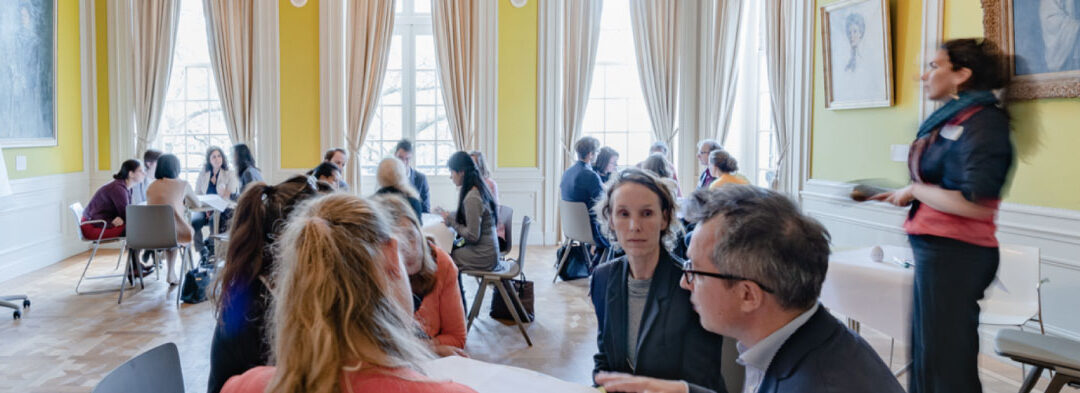The challenge
In this context the main goal was to co-design a conference in a more participatory manner with the aim of compiling the lessons learned during all previous conference cycles held in other European countries through the Design Thinking of the cycle: Land Management in Western Europe .
The events involved academics and policy makers from various countries, as well as experts and other parties interested in the subject.
What did we contribute?
- Design and collaborative creation of the event
- Facilitation of the participatory part
- Graphic facilitation and materials for social networks.
Co-design of the event
We started a collaborative process by consulting the project team with the ORATE managers and the ORATE regional contact points in Western Europe in order to clarify the purpose of the event, its different interests and its needs.
We designed a one-day participatory process and involved the different actors in the preparation phase. We formulated the purpose explicitly following Sociocracy 3.0’s driver format:
During the different ESPON conferences, a collective understanding of the current challenges in land management in Western Europe was generated, which is incredibly valuable. We need to consolidate this collective wisdom to clarify the key knowledge issues where there is a gap and capture ideas that will be of value for ESPON’s future research agenda.
During the ESPON roadshow, an invaluable collective understanding of current challenges in spatial planning in Western Europe has been generated. We need to consolidate this collective wisdom to clarify knowledge gaps and capture insights that will be of value for ESPON’s future research agenda.
With our team we designed a collaborative process using the proposal formation pattern of Sociocracy 3.0 and the Pro-action Café format of participatory leadership.
The facilitation part
80 people participated in the event. We welcomed them with a check-in and by sharing the main purpose of the event. Then they were invited to listen to the part of presentations and to ask generating questions that were collected in a panel on the wall.
After lunch, we divided the participants into 5 groups (each covering one of the following areas: energy and climate change, well-being and inclusion, housing management, sustainable urban development, green planning) in round tables. The purpose was, in three rounds, for them to explore these issues in the context of the organization of territories. After each round we invited them to change tables, and a facilitator at each table was responsible for collecting the ideas. During the last round we shared a template to collect the lessons.
At the end of the session, each group’s results were presented to the director of ORATE and the Interior Minister of the Netherlands. All sessions were facilitated by Mira Bangel in collaboration with representatives of ERRIN and INOVA.
Graphic facilitation
Marina Roa, our graphic facilitator, was present during the event to capture the key concepts and lessons learned during the event and synthesize them in a visual way.
Conclusion
Event Report: https://www.espon.eu/netherlands
It was not easy to find the common purpose of the event as there were different actors with varied interests. It was something we had to work on several times in order to go as deep as we needed to.
The collaboration between the three organizations involved in the development of the event was very fluid. Their openness to our ideas during the participatory and innovation parts made our work a lot smoother and allowed them to trust our work enough to let us guide them through the process. The collaboration of this new team worked and was even a pleasure, like a meeting of old friends.
Quote: “We can’t solve problems using the same way of thinking we used when we created them”.
Pictures and more information here: https://www.espon.eu/netherlands

